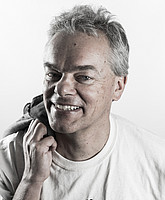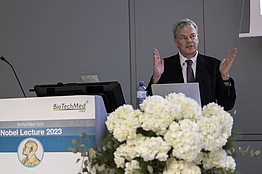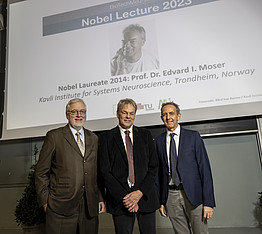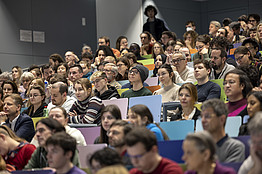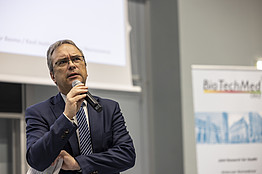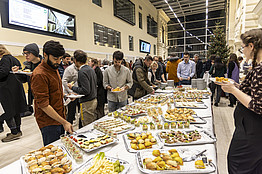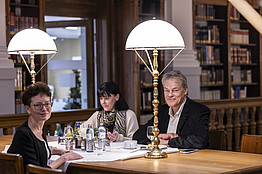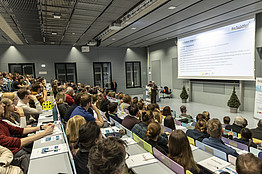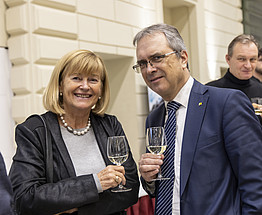End of this page section.
Go to overview of page sections.
Begin of page section: Additional information:
End of this page section.
Go to overview of page sections.
Nobel Lecture 2023
Begin of page section: Contents:
BioTechMed-Graz Nobel Lecture 2023 - Prof. Edvard I. Moser
On December 11, 2023 Nobel Laureate Prof. Edvard I. Moser held the BioTechMed-Graz Nobel Lecture 2023 at the University of Graz on the topic "The Brain's Systems for Space and Time".
Edvard Moser is founding director of the NTNU’s Kavli Institute for Systems Neuroscience and Co-Director of Center for Neural Computation in Trondheim, Norway. His work, conducted with May-Britt Moser as a long-term collaborator, includes the discovery of grid cells in the entorhinal Cortex, which provides the first clues to a neural mechanism for the metric of spatial mapping. For this accomplishment he has received numerous awards and the Nobel Prize in Physiology or Medicine 2014.
End of this page section.
Go to overview of page sections.
Begin of page section:
BioTechMed-Graz Coordination Office
Mozartgasse 12/II
8010 Graz
Mag. Julia Rohrer
Margit List-Schleich, MA
MMag. Christina Prix
End of this page section.
Go to overview of page sections.

